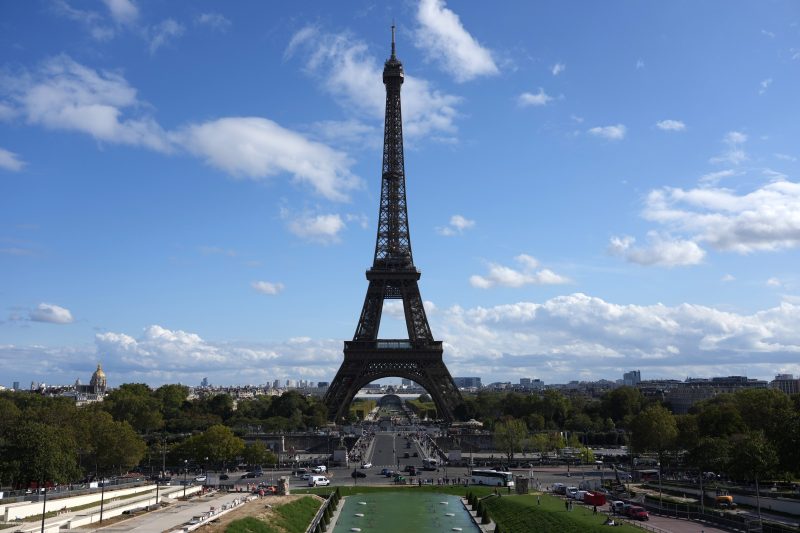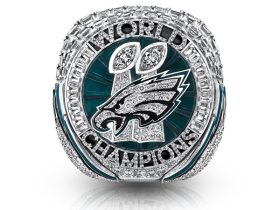The 2024 Paris Olympics promise to be a spectacle, in part because of the iconic city and landmarks that will serve as its backdrop.
The French capital is hosting the Summer Games for the first time in exactly a century. And in doing so, Paris 2024 organizers have attempted to weave the city itself within the fabric of the event. In lieu of key events at far-flung venues in the suburbs of Paris, they have opted to hold everything from beach volleyball to skateboarding to archery near (or even at) some of the city’s most recognizable tourist attractions.
‘Our plan is based on taking sport out of its traditional spaces,’ Paris 2024 organizing committee president Tony Estanguet has said, ‘and putting competitions at the heart of the city in front of the most famous Parisian landmarks.’
Get Olympics updates in your texts! Join USA TODAY Sports’ WhatsApp Channel
Here are six of those famous landmarks, which will serve as the backdrop for the 2024 Paris Olympics.
Meet Team USA: See which athletes made the U.S. Olympic team and where they are from
Château de Versailles
Sports: Equestrian and modern pentathlon
Known in English as the Palace of Versailles, this former royal residence − and its adjacent gardens − will have the rare distinction of being both a UNESCO World Heritage Site and an Olympic venue. The palace, which is located about 12 miles west of central Paris, dates to the 17th century and has since become a history museum and tourist attraction, drawing more than 15 million visitors per year. During the Games, it will host all three disciplines of equestrian as well as the show jumping portion of modern pentathlon. It will also host para-equestrian during the 2024 Paralympic Games.
Eiffel Tower
Sport: Beach volleyball
There is no Parisian landmark more iconic than the Eiffel Tower, so there may not be a more breathtaking venue at these Games than Eiffel Tower Stadium. The temporary 12,000-seat venue will sit not directly under the Eiffel Tower but in its shadow, about 400 meters away down Champ de Mars, the grassy park surrounding the landmark. It will host both men’s and women’s beach volleyball during the Olympics before being repurposed for blind football during the Paralympics.
Invalides
Sports: Archery, cycling and marathon
A short walk east of the Eiffel Tower is another one of Paris’ best-known landmarks: Les Invalides, a series of buildings that now house museums and military monuments. It is also where Napoleon Bonaparte’s tomb is located. The grassy Esplanade des Invalides nearby will be home to archery and para-archery this summer, while also serving as both the starting point for the individual time trial in road cycling and the finish of the men’s and women’s marathons, which will take place on the final two days of the Olympic Games.
Grand Palais
Sports: Fencing and taekwondo
The organizing committee has described the Grand Palais as ‘a true jewel in Paris’ crown.’ Located on the Avenue des Champs-Élysées in central Paris, the building was constructed as an exhibition hall in 1900 and boasts the largest glass roof in Europe. While it has been closed to the public for renovations over the better part of the past three years, the Grand Palais is slated to host a total of 20 events across two Olympic sports, as well as their Paralympic counterparts during the subsequent Paralympic Games.
The USA TODAY app gets you to the heart of the news — fast. Download for award-winning coverage, crosswords, audio storytelling, the eNewspaper and more.
Place de La Concorde
Sports: Breaking, BMX freestyle, 3×3 basketball and skateboarding
When Paris 2024 organizers talked about bringing sports into the city, to make for a more urban Olympic Games, this is what they meant. The plaza at the end of the Avenue des Champs-Élysées will temporarily become what Paris 2024 has described as ‘an open stage where urban sports take place in their original playground.’ Modest temporary venues for four sports, none with a capacity of more than 7,300 spectators, will share this space during the Olympics − most notably breaking, which will be making its Olympic debut.
The Seine
Sports: Opening ceremony, marathon swimming and triathlon
Though the river that weaves through central Paris might not be a competition venue, per say, it will nonetheless function as one. The French government has spent years planning to clean up the Seine to make it safe for marathon swimmers and triathletes to swim in during competition at the Games − and despite lingering concerns from third parties, organizers maintain optimism that will happen. The river will also serve as the primary site of the opening ceremony, with athletes floating on barges rather than marching into a stadium.






